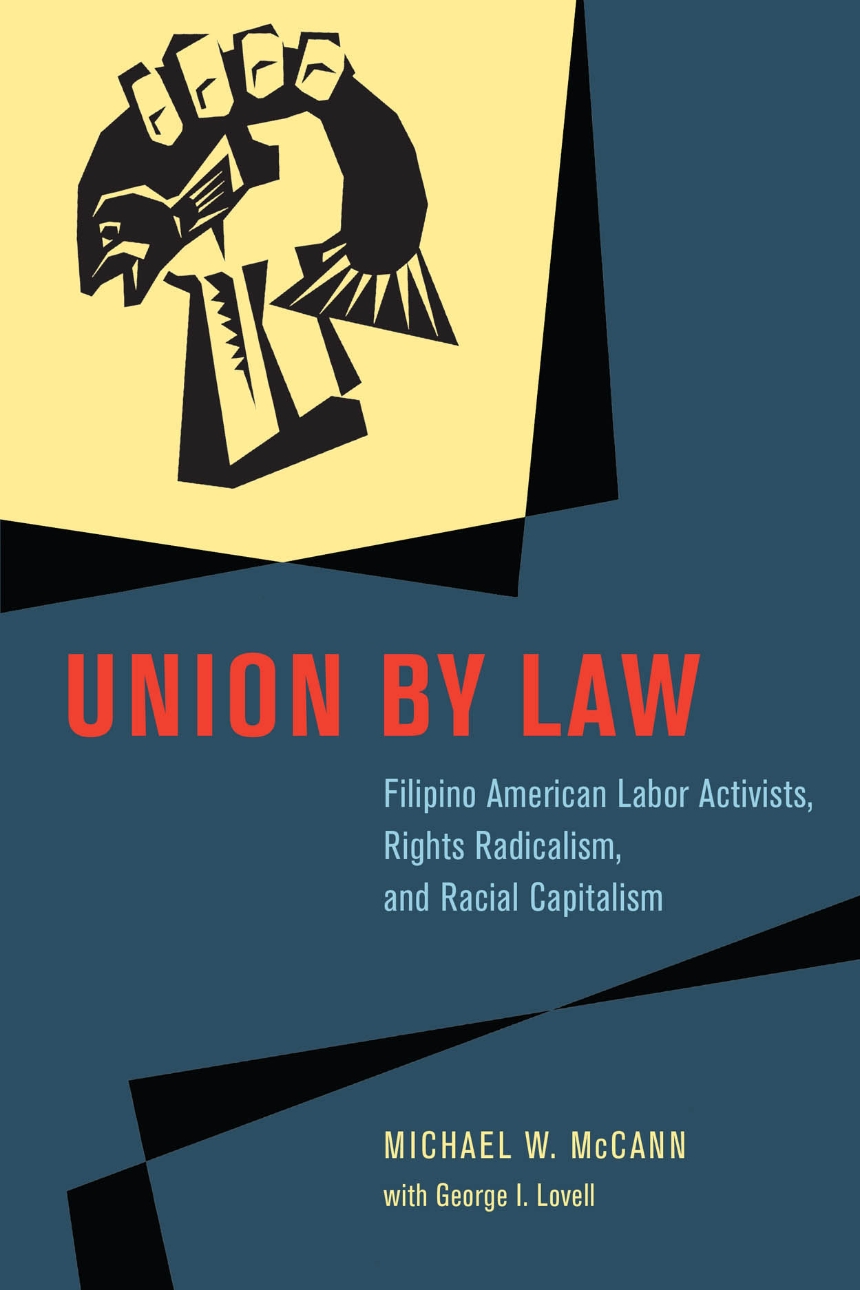Union by Law
Filipino American Labor Activists, Rights Radicalism, and Racial Capitalism
9780226679907
9780226679877
9780226680071
Union by Law
Filipino American Labor Activists, Rights Radicalism, and Racial Capitalism
Starting in the early 1900s, many thousands of native Filipinos were conscripted as laborers in American West Coast agricultural fields and Alaska salmon canneries. There, they found themselves confined to exploitative low-wage jobs in racially segregated workplaces as well as subjected to vigilante violence and other forms of ethnic persecution. In time, though, Filipino workers formed political organizations and affiliated with labor unions to represent their interests and to advance their struggles for class, race, and gender-based social justice.
Union by Law analyzes the broader social and legal history of Filipino American workers’ rights-based struggles, culminating in the devastating landmark Supreme Court ruling, Wards Cove Packing Co. v. Atonio (1989). Organized chronologically, the book begins with the US invasion of the Philippines and the imposition of colonial rule at the dawn of the twentieth century. The narrative then follows the migration of Filipino workers to the United States, where they mobilized for many decades within and against the injustices of American racial capitalist empire that the Wards Cove majority willfully ignored in rejecting their longstanding claims. This racial innocence in turn rationalized judicial reconstruction of official civil rights law in ways that significantly increased the obstacles for all workers seeking remedies for institutionalized racism and sexism. A reclamation of a long legacy of racial capitalist domination over Filipinos and other low-wage or unpaid migrant workers, Union by Law also tells a story of noble aspirational struggles for human rights over several generations and of the many ways that law was mobilized both to enforce and to challenge race, class, and gender hierarchy at work.
Union by Law analyzes the broader social and legal history of Filipino American workers’ rights-based struggles, culminating in the devastating landmark Supreme Court ruling, Wards Cove Packing Co. v. Atonio (1989). Organized chronologically, the book begins with the US invasion of the Philippines and the imposition of colonial rule at the dawn of the twentieth century. The narrative then follows the migration of Filipino workers to the United States, where they mobilized for many decades within and against the injustices of American racial capitalist empire that the Wards Cove majority willfully ignored in rejecting their longstanding claims. This racial innocence in turn rationalized judicial reconstruction of official civil rights law in ways that significantly increased the obstacles for all workers seeking remedies for institutionalized racism and sexism. A reclamation of a long legacy of racial capitalist domination over Filipinos and other low-wage or unpaid migrant workers, Union by Law also tells a story of noble aspirational struggles for human rights over several generations and of the many ways that law was mobilized both to enforce and to challenge race, class, and gender hierarchy at work.
504 pages | 24 halftones | 6 x 9 | © 2020
Chicago Series in Law and Society
History: American History
Law and Legal Studies: Law and Society
Political Science: American Government and Politics
Reviews
Table of Contents
List of Abbreviations
Notes on Terminology
Introduction
Part I American Capitalist Expansion, Colonialism, and Empire
Prologue to Part I: The American Colonial Project in the Philippines
1 Filipino Migration to the Metropole: Racism, Resistance, and Rights
2 A Cannery Workers’ Union by Law: The Formative Years
3 Rights Radicalism amid “Restrictive” Law: The War Years
Part II Challenging Empire: Transpacific Rights Radicalism
Prologue to Part II: The Cold War Era: Global Empire, the Rise of Marcos, and Civil Rights
4 LELO, ACWA, and the Politics of Radical Rights Mobilization
5 The Trials of Tragedy: Turning Anguish into Anger
6 Wards Cove v. Atonio: The Execution of “Good” Civil Rights Law
Conclusion: Theorizing Law and Legal Mobilization in Racial Capitalist Empire
Appendix: Official Legal Texts
Notes
References
Index
Notes on Terminology
Introduction
Part I American Capitalist Expansion, Colonialism, and Empire
Prologue to Part I: The American Colonial Project in the Philippines
1 Filipino Migration to the Metropole: Racism, Resistance, and Rights
2 A Cannery Workers’ Union by Law: The Formative Years
3 Rights Radicalism amid “Restrictive” Law: The War Years
Part II Challenging Empire: Transpacific Rights Radicalism
Prologue to Part II: The Cold War Era: Global Empire, the Rise of Marcos, and Civil Rights
4 LELO, ACWA, and the Politics of Radical Rights Mobilization
5 The Trials of Tragedy: Turning Anguish into Anger
6 Wards Cove v. Atonio: The Execution of “Good” Civil Rights Law
Conclusion: Theorizing Law and Legal Mobilization in Racial Capitalist Empire
Appendix: Official Legal Texts
Notes
References
Index
